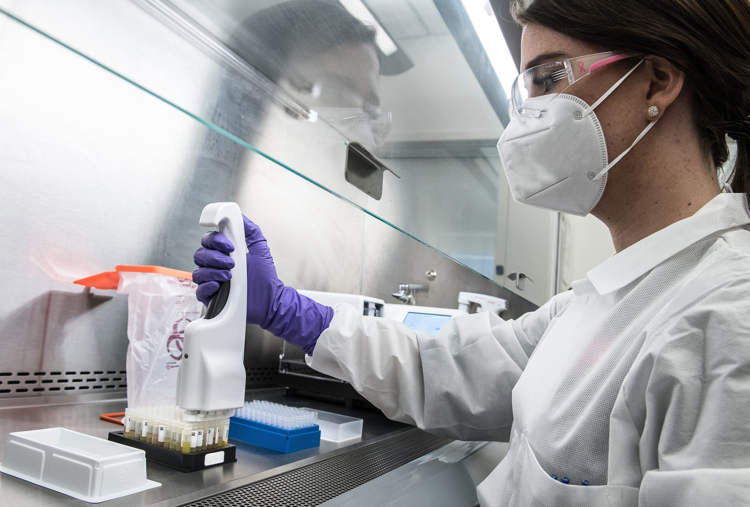Chinese researchers have stirred up a storm within the scientific community by releasing a study on a mutant coronavirus-related virus, allegedly leading to a 100 percent death rate in humanized mice upon infection.
The origin of the Covid-19 virus remains a mystery, but online conspiracy theories revolving around a Chinese lab experiment gone awry have gained traction once again.
This surge in speculation is attributed to a contentious study recently published by scientists in Beijing, who conducted experiments with a mutated strain of GX_P2V—a coronavirus variant identified in Malaysian pangolins in 2017, three years before the onset of the Covid-19 pandemic.
The researchers used this strain to infect genetically modified mice engineered to mimic the genetic composition of humans. Notably, this controversial study is the first of its kind to report a 100% mortality rate in mice infected by GX_P2V, surpassing the results of previous research.
Chinese Laboratory Develops Mutant Virus Similar to Coronavirus, Resulting in 100% Mortality Rate in Humanized Mice (Credits: New York Post)
The study authors observed that all humanized mice infected with GX_P2V succumbed within eight days, exhibiting an unexpectedly rapid mortality rate.
As the virus weakened its hosts, the mice showed signs of weight loss, decreased mobility, and a hunched posture. GX_P2V was found to infect various organs, including the lungs, bones, eyes, tracheas, and brains, causing the mice’s eyes to turn completely white a day before their demise.
The authors of the study highlighted the potential spillover risk of GX_P2V into humans, emphasizing the unique model it provides for understanding the pathogenic mechanisms of SARS-CoV-2-related viruses.
These alarming findings have elicited strong reactions from Western scientists and virologists, with many labeling the study as ‘terrible’ and ‘useless’ for its failure to offer meaningful insights into how the GX_P2V virus might impact humans.
Francois Balloux, an epidemiology expert at the University College London’s Genetics Institute, criticized the study for lacking information on the biosafety level and precautions used during the research.
He expressed concern that the absence of such details raises the possibility of reckless research, similar to the Wuhan studies in 2016-2019 that are believed to have contributed to the COVID-19 pandemic.
Richard H. Ebright, Professor of Chemistry and Chemical Biology at Ruger’s University, echoed Balloux’s sentiments, and Gennadi Glinsky, a retired professor of medicine at Stanford, emphasized the need to halt such research before it is too late, deeming it as “madness.”
